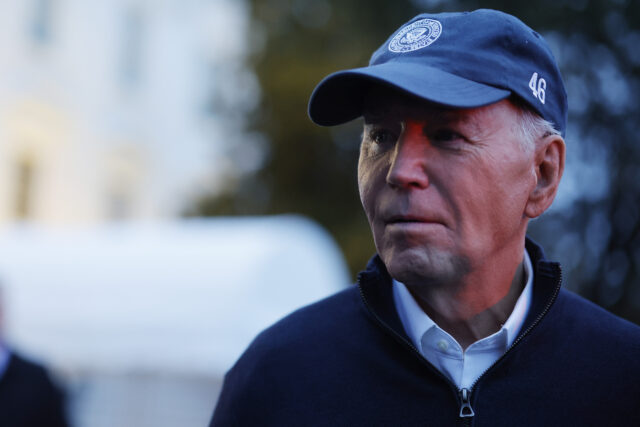President Biden spent a good portion of last year trying to sell the American public on the idea that his policies were a boon for the economy, repeatedly using the phrase “Bidenomics.”
Younger Americans likely to vote in this year’s presidential election are not buying it.
A new poll by The New York Times and Siena College found that likely voters between the ages of 18 and 29 overwhelmingly have a negative opinion of economic conditions today.
Even more strikingly, virtually none rate the economy as excellent.
Eighty-seven percent of likely voters between 18 and 29 rate economic conditions as poor or only fair, making this the worst demographic for Biden when it comes to the economy. That’s particularly troubling for Joe Biden because Democratic candidates for president typically need an outsized share of the young vote to win.
What’s more, the negative views of the economy are skewed to the lowest ranking. Sixty percent of younger likely voters rate the economy as poor and 26 rate the economy as only fair. (The total does not add up to 87 percent, presumably due to rounding.)
Just thirteen percent say they rate the economy as “good.”
The percent who say they rate the economy as “excellent?” Zero.
The view of the economy is only a bit brighter among older likely voters. For those between 30 and 44, 76 percent have a negative view, including 50 percent who say conditions are poor. Just four percent say they are excellent.
Among likely voters between 45 and 64, 73 percent have a negative view, including 50 percent who give the economy the lowest mark. Seven percent say the economy is “excellent.”
Older voters are less negative, with 60 percent saying conditions are poor or only fair. Forty percent say conditions are poor. The are saying conditions are excellent jumps to 16 percent, which may reflect the large cost of living increases in Social Security, gains in the stock market, and climbing home prices. Older Americans are more likely to own homes and be invested in the stock market than younger Americans.
As well, many older Americans may be happy that fixed income instruments are paying much higher rates than they have in over a decade.

COMMENTS
Please let us know if you're having issues with commenting.